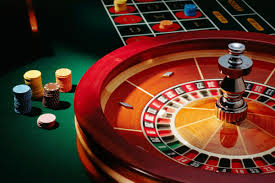
How to Deal with Addictions When You Have One: Insights from Julian Mitton, MD
Dealing with addictions can be a challenging journey, but it is possible to overcome them and reclaim control over your life. Julian Mitton, MD, offers valuable insights on how to handle addictions when you find yourself trapped in their grip. Understanding the nature of addictions, their impact on your life, and implementing strategies for positive change are key steps towards recovery.
Addictions are behavior patterns that can have a profound effect on various aspects of your life. They can alter your emotions, thoughts, and interactions with others. According to Julian Mitton, MD, addictions can lead to a loss of control over your existence and can negatively impact your mental and physical well-being. Some addictions can even develop into full-blown obsessions with drugs or alcohol.
Loss of control is a common characteristic of addiction. It can lead individuals to make poor choices and engage in excessive drug or alcohol use, seeking pleasure rather than nourishment or well-being. Additionally, addictions can have detrimental effects on mental health, contributing to conditions such as depression, anxiety, and stress. They can also increase the risk of chronic illnesses like diabetes and heart disease.
To effectively handle addictions, it is crucial to adopt personalized strategies that suit your strengths and weaknesses. While there is no one-size-fits-all solution, Julian Mitton, MD, suggests several approaches that may prove helpful:
1. Openly discuss your addiction: Breaking the silence and talking about your addiction can be a significant first step towards recovery. Seek support from trusted friends, family members, or professionals who can provide guidance and encouragement.
2. Seek expert help if needed: Recognizing that you may require professional assistance is a crucial aspect of dealing with addictions. Seeking the guidance of addiction specialists, therapists, or support groups can provide you with the tools and strategies necessary to overcome your addiction.
3. Express your feelings and desires: Develop healthy coping mechanisms by expressing your emotions and desires in constructive ways. Engage in activities such as writing, art, or physical exercise to channel your energy and emotions positively.
4. Take control of your own life: Empower yourself by taking ownership of your choices and actions. Set clear goals and establish healthy boundaries to avoid triggers and temptations that could lead to relapse.
5. Take regular addiction breaks: Incorporate breaks from addictive behaviors into your routine. These breaks can be a chance to reflect, recharge, and regain control over your actions. Use this time to explore alternative activities that bring joy, fulfillment, and a sense of purpose to your life.
Making positive changes in your life without addictions is a transformative process. Focus on nourishing your body and mind by adopting a healthy diet, engaging in regular exercise, and actively participating in enjoyable activities. Embrace a holistic approach to well-being, emphasizing self-care, healthy relationships, and mindfulness.
Overcoming addiction is a challenging journey, but with determination, support, and the right strategies, it is possible to heal and start anew. Julian Mitton, MD , encourages individuals struggling with addiction to seek help, believe in their capacity for change, and embrace a life free from the grips of addiction. Remember, your journey to recovery begins with a personal decision to make a positive change.




